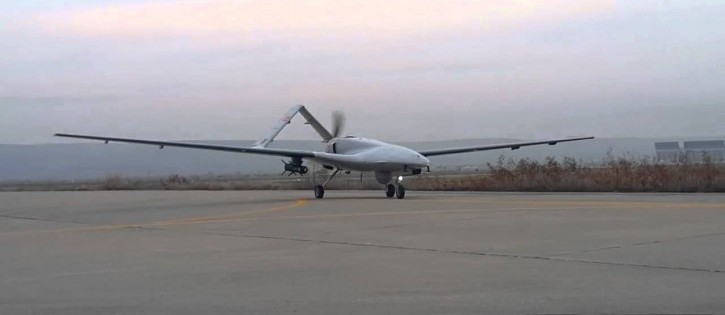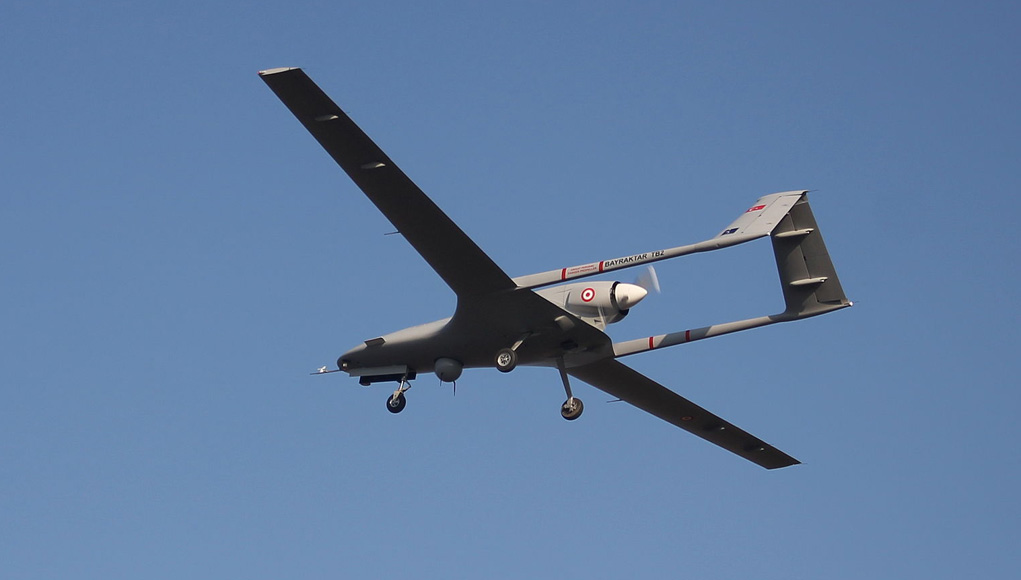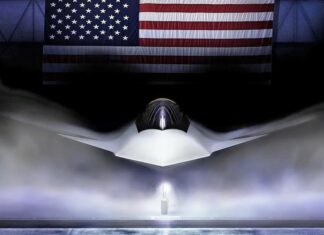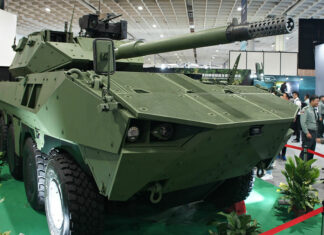A Turkish drone has successfully completed firing tests of UMTAS anti-tank missile. The drone named “Bayraktar TB2” is developed by the Kale-Baykar joint venture between the Kale Group and Baykar Technologies. The weaponized variant was demonstrated with the UMTAS long-range anti-tank missile originally developed for the Turkish T-129 attack helicopter. On the recent test the drone carried two missiles load of 75 kg. (exceeding the drone’s payload capacity). The missile was dropped from an altitude of 16,000 ft. to hit a 2×2 meter laser-designated target self designated from the drone, from a distance of 8,000 meters.
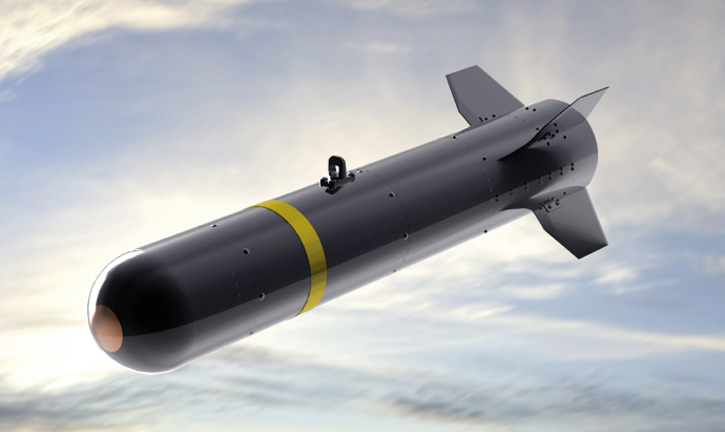
The TB2 platform has a blended wing body design which provides additional lift and space for fuel and avionics. It has a maximum takeoff weight of 650 kg MTOW and 12 meters wingspan, Bayraktar can fly up to 22,500 feet and loiter for more than 24 hours powered by a single 100 HP Rotax 912 internal combustion engine. With maximum fuel the drone can carry a payload of 50 kg. Therefore, to accommodate two missiles and an EO payload, the operators would trade off a significant fuel load.
Roketsan is developing a smaller munition – the ‘Smart Micro Munition’ especially designed for drones. This unpowered weapon weighs only 50 lbs (22.6kg) but has an effective range of up to eight kilometers, depending on the launch altitude.
The drone successfully accomplished the acceptance tests with in November last year. So-far the Turkish forces have received six such drones. A larger drone named Anka B is also developed in Turkey, by Turkish Aerospace Industries. While Anka is a heavier platform capable of carrying more payloads, the current version (Anka A) has not performed weapons tests, except a single firing of Roketsan 70mm CIRIT laser guided rocket. No publicly released records were presented from that test but according to Turkish sources, a larger and heavier version – Anka B is being developed to accommodate heavier loads and weaponized configurations. Another tactical drone named Karayel was launched this year, for Turkish military evaluation.
